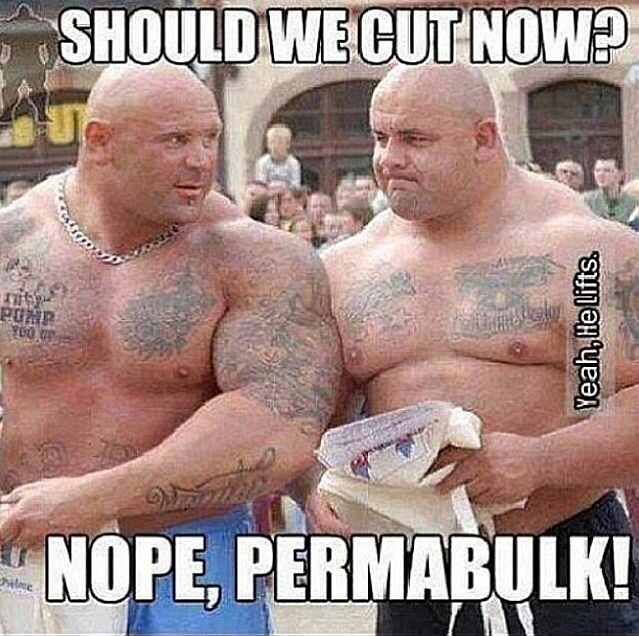
When a large amount of body weight is cut through drastic intervention, the effects on performance are very clear.

Rugby and athletic coach, Matt Thomas, told us he never recommends a bulk or cut to his players because “across the board this has been seen to have detrimental effects on athletic output. It really wasn’t satisfying.”īulking and cutting can affect your athletic performance. The phases would cross over for a few weeks, where I would look and feel good, but I wanted to be lean and muscular all year round. He said, “When I cut I took my calories too low and in the process worked off a lot of the muscle mass that I had gained. Scott Laidler learned this from his own journey when he first started out in fitness. However, burning one pound of body fat isn’t as simple as reducing your calories by that amount – your body loves to burn muscle too. Years ago, scientists found that a pound of fat contains 3,500 calories of energy. It’s pretty tough to lose as much fat as you want to while retaining muscle when ‘cutting’.

If you want to take a protein supplement, British Dietetic Association clinical and sports dietitian Rick Miller suggests sticking to the recommended serving size and never taking more than is needed. Nowadays, protein is available as shakes, bars and capsules, making it easy to consume vast amounts of it with additional sugar and calories without getting full. The risks associated with a high-protein diet are greater for people with a pre-existing health condition, and if you have kidney or liver damage you should consult a doctor before making changes to your diet.īack in the 1960s and '70s, when bulking first became a phenomenon, body builders relied on nutrient-dense, natural foods such as steak, milk and eggs. The NHS links a high-protein, low-fibre diet to recurring kidney stones. He said his body couldn't process the protein and so turned it into calcified deposits in his kidneys. He had kidney stones, which he believed were likely to be caused by eating too much protein. In 2016, BBC Three reported on a man who was hospitalised after trying to 'bulk up'. The UK National Diet and Nutrition Survey reveals that the average amount of protein eaten by a 19-64-year-old man is 87.4g per day and woman 66.6g – much more than the NHS recommendation of 55.5g for men and 45g for women depending on body mass and physical exertion. It’s not difficult to eat the amount of protein you need for muscle growth. So if you eat too much, you'll just get fatter. "There is a genetic limitation to how much muscle mass you can put on over a given time, no matter how much you exercise and eat protein", says weight loss coach and personal trainer, Dr Aishah Muhammad. It's not as simple as protein equals muscle. Without protein, you will just gain fat and little muscle", he continues. "A high proportion of your extra calories should come from foods containing protein, which will give you the necessary amino acids to build muscle mass. To increase muscle mass, you must “eat more calories than needed to maintain your body weight”, says personal trainer Scott Laidler. Muscle growth occurs when the rate of protein synthesised into muscle is greater than the amount of muscle protein breakdown. After exercise, your body repairs these fibres by fusing old and new protein strands together, making them stronger and sometimes bigger. When you exercise, you damage muscle fibres, which is a good thing.

Muscles are made of protein, so eating extra protein should lead to bigger muscles, right? Sort of… but not quite.


 0 kommentar(er)
0 kommentar(er)
